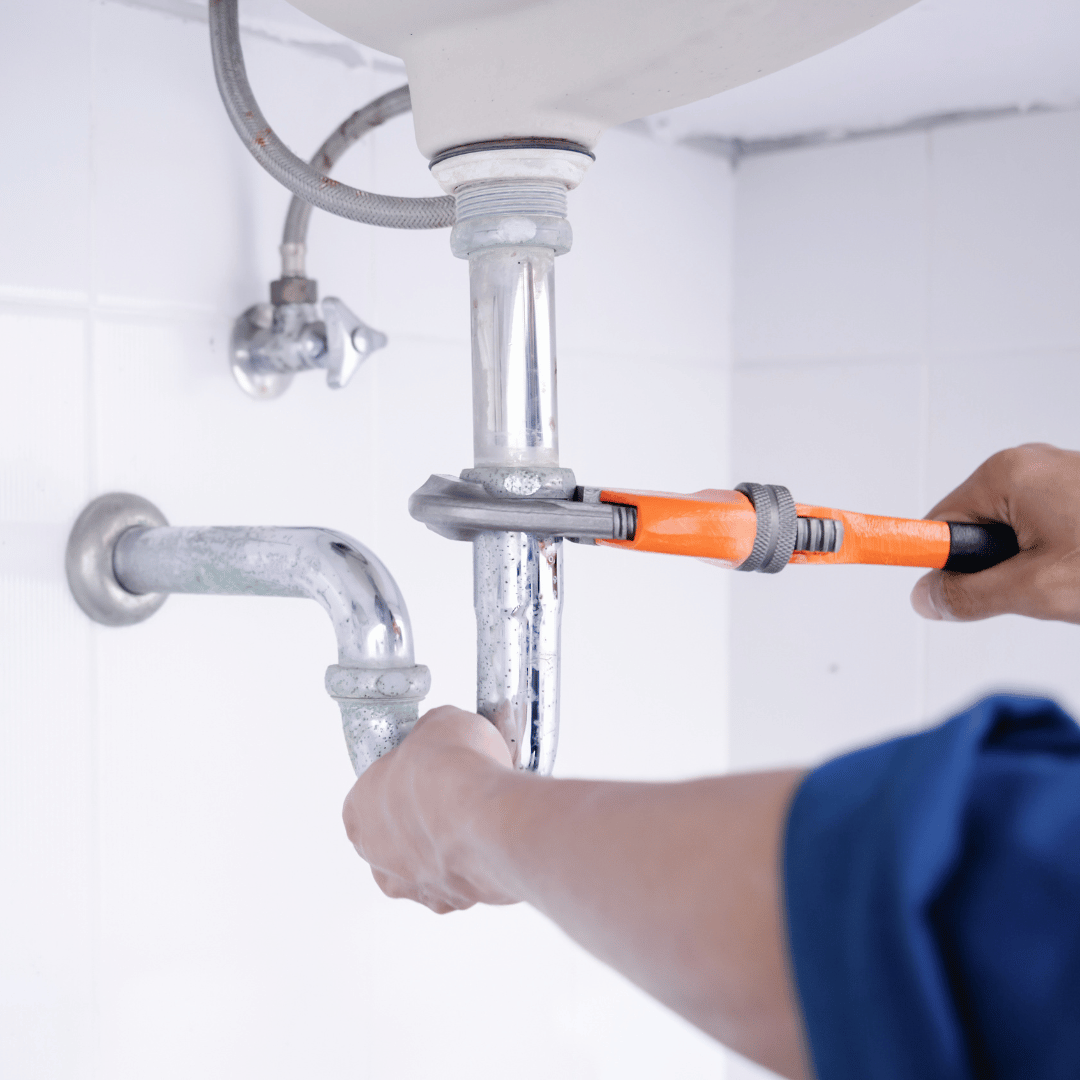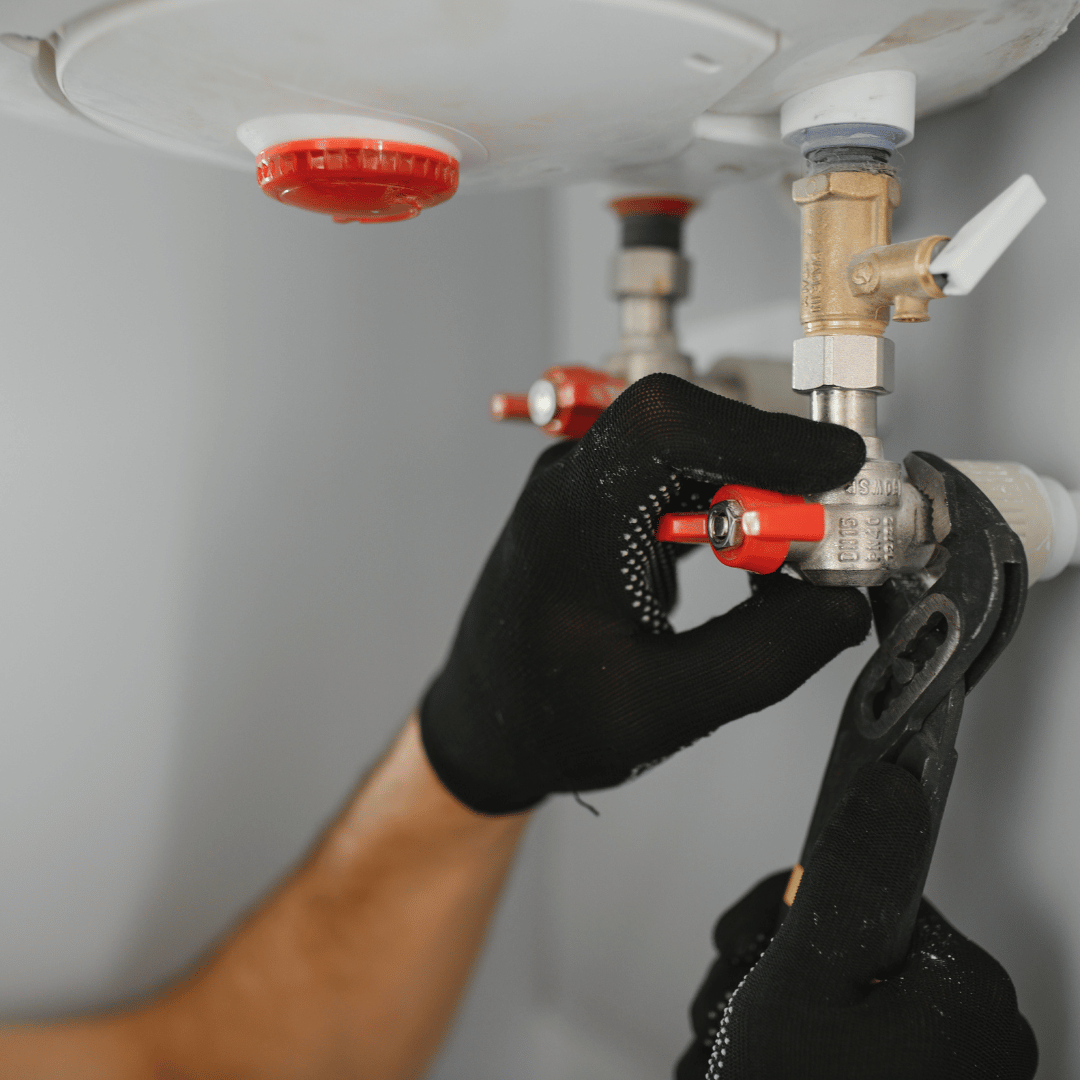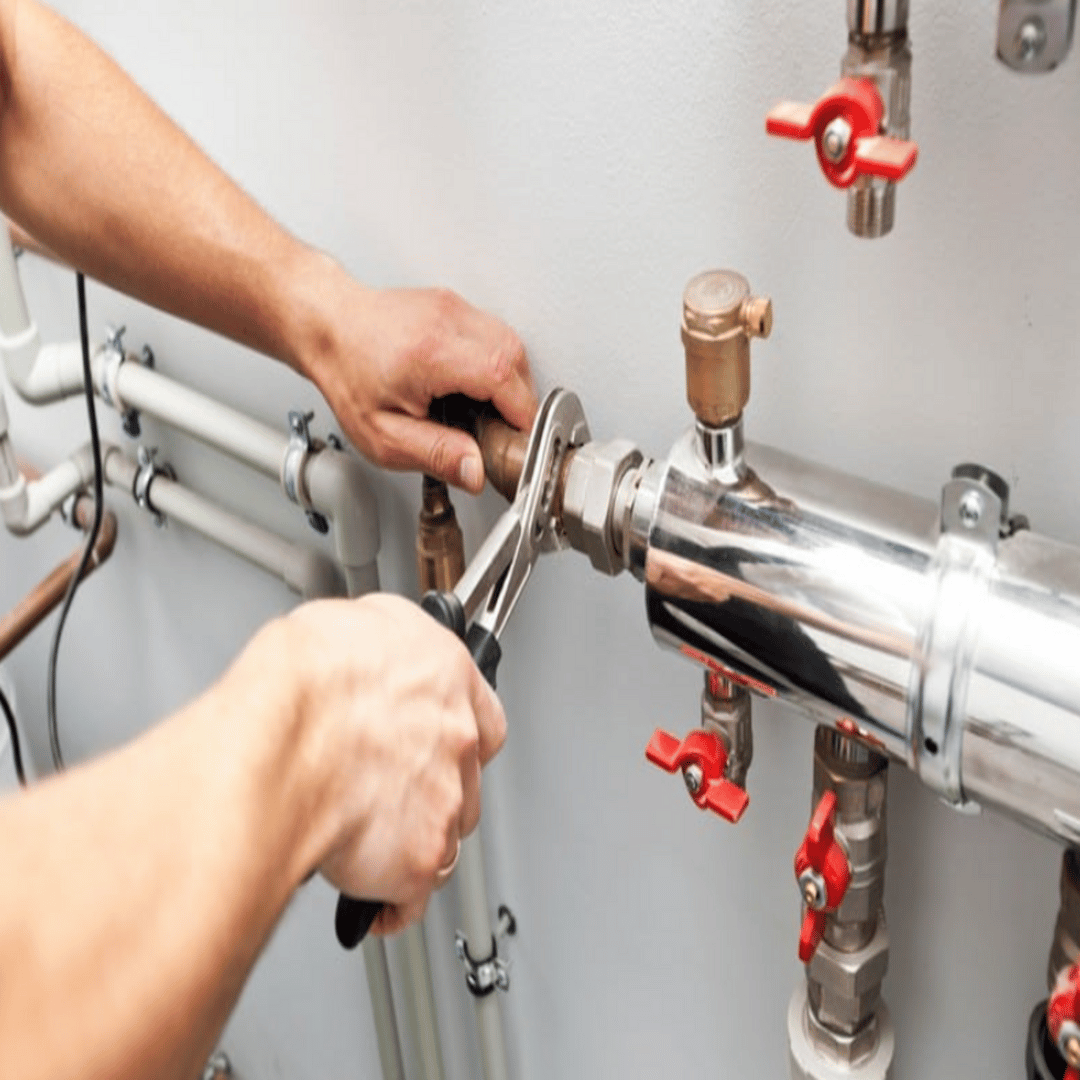Your plumbing system is one of the most essential yet often overlooked parts of your home. From providing clean water for daily tasks like cooking and cleaning to ensuring proper waste disposal, a well-maintained plumbing system keeps everything running smoothly. However, just like any other system in your home, your plumbing needs regular care to avoid costly repairs, water damage, and inconvenient breakdowns.
Plumbing preventive maintenance plays a critical role in keeping your pipes, drains, sinks, toilets, showers, bathtubs, and water heaters in top condition. By addressing small issues before they escalate into major problems, preventive maintenance can save you time, money, and stress in the long run.
At Larratt Bros Plumbing, we’ve been helping homeowners in the Bay Area for over 30 years with expert plumbing repairs, maintenance, and installations. In this blog, we’ll dive into what plumbing preventive maintenance is, why it’s important, and how it can help you avoid costly plumbing repairs in the future.
Let’s explore the importance of taking proactive steps to maintain your home’s plumbing system and keep it running efficiently for years to come.
What is Plumbing Preventive Maintenance?
Plumbing preventive maintenance refers to the regular and proactive steps you take to ensure your plumbing system is functioning optimally. Rather than waiting for problems like clogged drains, leaking faucets, or malfunctioning water heaters to arise, preventive maintenance aims to detect and address potential issues before they turn into costly repairs or emergencies.
By scheduling regular inspections and performing routine tasks, such as cleaning drains, checking for leaks, and flushing water heaters, you can extend the life of your plumbing system and avoid unexpected breakdowns. Preventive maintenance not only helps you stay ahead of minor issues but also keeps your home safe from water damage and the inconvenience of plumbing failures.
Here are some of the key aspects of plumbing preventive maintenance:
- Regular Inspections: A professional plumber will inspect your system, looking for early signs of wear or failure. This includes checking pipes, faucets, sinks, and appliances like garbage disposals and water heaters.
- Drain Cleaning: Routine drain cleaning prevents the buildup of debris, grease, and other blockages that can cause slow drainage or backups in your drains.
- Leak Detection: Small leaks can go unnoticed, but they can lead to major water damage over time. Early detection through preventive maintenance can save you from expensive repairs later.
- Water Heater Maintenance: Flushing your water heater annually to remove sediment buildup improves its efficiency, extends its lifespan, and prevents costly water heater repairs.
In short, plumbing preventive maintenance is about being proactive rather than reactive. By taking care of your plumbing system before small issues become big problems, you protect both your home and your wallet.
What is an Example of Preventive Maintenance?
There are several examples of plumbing preventive maintenance tasks that can help keep your plumbing system in top shape. Regularly performing these simple actions can prevent costly repairs, extend the lifespan of your plumbing, and ensure that everything is functioning smoothly. Here are some key examples:
1. Regular Drain Cleaning
Clogged drains can be one of the most common plumbing problems, and they often start as small issues before escalating into major blockages. Regular drain cleaning can help prevent slow drainage, odors, and eventual backups. This maintenance involves using eco-friendly cleaning solutions or professional tools to remove grease, hair, and debris from the pipes.
2. Flushing Your Water Heater
Over time, water heaters accumulate sediment and minerals from the water, which can affect performance and efficiency. Flushing your water heater annually helps remove this buildup, ensuring your heater operates efficiently and lasts longer. This simple step can prevent overheating and extend the lifespan of your water heater, saving you from unexpected water heater repairs.
3. Leak Detection
Small leaks in pipes, toilets, faucets, and even your water heater can go unnoticed, leading to significant water damage over time. Regular leak detection is crucial to identify and address these issues early, before they cause expensive water damage or even structural damage to your home. Scheduling professional inspections can ensure no leak goes undetected.
4. Garbage Disposal Maintenance
Your garbage disposal is another critical piece of plumbing equipment that benefits from preventive maintenance. Over time, it can get clogged with food debris, grease, or other waste, leading to foul odors and possible breakdowns. Regularly cleaning your garbage disposal installation and using it properly (e.g., avoiding fibrous foods and large bones) can help maintain its efficiency and prevent expensive repairs.
5. Faucet and Toilet Inspections
Toilets and faucets can wear out or develop leaks over time, often causing minor water wastage before escalating to major issues. Regular inspections can help identify worn washers, damaged seals, or malfunctioning valves, which can be repaired early to avoid costly toilet repair & installation or faucet repairs.
By staying on top of these basic maintenance tasks, you can prevent many common plumbing problems and keep your system running smoothly for years to come. Preventive maintenance ensures that issues are addressed early, reducing the likelihood of costly plumbing repairs and ensuring your home’s plumbing is always in great condition.
How to Maintain a Plumbing System?
Maintaining your plumbing system is crucial for preventing major issues and costly repairs. A well-maintained system ensures the proper functioning of key components such as sinks, drains, showers, toilets, and water heaters. Here are some simple and effective steps to maintain your plumbing system:
1. Schedule Regular Inspections
One of the best ways to maintain your plumbing system is through regular inspections by a professional plumber. A routine check-up can help identify small problems before they escalate into major issues. During an inspection, plumbers will look for signs of leaks, corrosion, or worn-out parts in your pipes, faucets, and appliances like water heaters and garbage disposals.
2. Clean Drains Regularly
Drains can easily become clogged with grease, food particles, soap, and hair. To prevent blockages, regularly clean your drains using a drain cleaner or natural remedies like baking soda and vinegar. Additionally, install drain covers in sinks and showers to catch debris and prevent clogs. For a deeper clean, schedule a professional drain cleaning service to remove buildup that may not be reachable with household methods.
3. Fix Leaks Promptly
Leaking pipes, faucets, or toilets are common issues that can waste a lot of water if left unattended. Even small leaks can cause long-term damage to your plumbing system, leading to rusted pipes or water damage in your home. If you notice any signs of leaks, like water stains or dripping sounds, call a plumber for prompt leak detection and repair.
4. Maintain Water Pressure
High or low water pressure can indicate problems with your plumbing system. High water pressure can strain pipes, causing them to burst, while low pressure can signal clogs or other issues. If you notice water pressure problems, have your plumbing system checked by a professional to ensure everything is functioning correctly.
5. Flush Your Water Heater
Over time, water heaters accumulate sediment and minerals, which can reduce their efficiency and lifespan. Flushing your water heater annually helps remove this buildup and ensures the system works at optimal efficiency. This also prevents the need for costly water heater repairs down the line.
6. Maintain Your Garbage Disposal
Your garbage disposal plays a key role in keeping your kitchen plumbing system running smoothly. Regularly clean it by grinding ice cubes or citrus peels to remove odors and debris. Avoid putting fibrous materials like celery or large bones down the disposal, as these can cause clogs and damage. If your garbage disposal is malfunctioning, call a plumber for an inspection or repair.
7. Check Toilets and Faucets
Toilets and faucets are essential plumbing components that can wear out over time. If you notice your toilet running constantly or a leaky faucet, it’s important to fix them immediately to avoid wasting water. Replacing worn washers, seals, or valve components can help extend the life of your plumbing fixtures and prevent the need for expensive toilet repair & installation or faucet replacements.
8. Water Treatment & Purification
If your home uses a water treatment & purification system, it’s important to regularly check and maintain the equipment. Change filters as recommended by the manufacturer and schedule annual inspections to ensure your system is effectively providing clean, safe water. Regular maintenance helps avoid issues like mineral buildup, which can affect your plumbing and appliances.
By following these steps, you can keep your plumbing system in great shape, avoid costly plumbing repairs, and extend the life of your sinks, showers, toilets, and other plumbing fixtures. Regular maintenance will also help ensure that your home runs efficiently and your plumbing continues to provide the services you rely on every day.
What Are the Four Types of Preventive Maintenance?
Preventive maintenance isn’t just one-size-fits-all. It includes different approaches depending on the specific needs of your plumbing system and the equipment being maintained. Understanding the four types of preventive maintenance can help you create a plan that keeps your plumbing running smoothly. Here’s an overview of each type:
1. Corrective Maintenance
Corrective maintenance refers to fixing issues that arise as part of regular operation. This type of maintenance occurs when something breaks or fails, but it is still done proactively rather than waiting for an emergency. In plumbing, corrective maintenance might include repairing a toilet that’s malfunctioning or replacing a faulty faucet. This type of maintenance is necessary for preventing more significant damage from developing. For example, fixing a small leak now can prevent major water damage in the future.
2. Scheduled Maintenance
Scheduled maintenance is the most common type of plumbing preventive maintenance. It involves setting up regular check-ups for your plumbing system at specific intervals—often yearly or seasonally. This might include inspecting sinks, drains, showers, water heaters, and other essential plumbing components. Scheduled maintenance tasks can include flushing water heaters, cleaning drains, inspecting pipes for signs of wear, and checking for leaks. By scheduling regular visits from a plumber, you reduce the chances of unexpected breakdowns and catch potential problems before they get worse.
3. Predictive Maintenance
Predictive maintenance is a more advanced form of maintenance that relies on data and monitoring to predict when a piece of plumbing equipment might fail. With predictive maintenance, professionals use tools like sensors or cameras to assess the condition of pipes, water heaters, garbage disposals, and other systems. They may monitor factors such as water pressure, temperature, and flow rate. By analyzing this data, plumbers can predict the need for repairs or replacements before the system breaks down entirely. This type of maintenance can help extend the life of your plumbing system and prevent costly emergency repairs.
4. Proactive Maintenance
Proactive maintenance involves identifying potential problems before they happen, using regular inspections and detailed assessments. Proactive maintenance goes beyond simple inspections by actively seeking out issues that could cause problems down the road. This might involve things like replacing old or worn-out parts, ensuring proper installation, and making small adjustments to avoid future failures. For example, proactively replacing the anode rod in your water heater or checking the toilet repair & installation for hidden leaks can prevent major issues down the line.
Each of these maintenance types contributes to the longevity and functionality of your plumbing system. By combining them, you can create a comprehensive maintenance plan that helps prevent failures and ensures that your home’s plumbing always operates efficiently. Preventive maintenance can reduce the likelihood of needing expensive repairs while improving the overall reliability of your plumbing system.
What is Basic Preventive Maintenance?
Basic preventive maintenance refers to simple, routine tasks that homeowners can perform themselves to keep their plumbing systems functioning properly. These tasks, while small, can go a long way in preventing larger issues and ensuring the long-term efficiency of your plumbing system. Here are some basic preventive maintenance tasks you can incorporate into your regular routine:
1. Inspecting and Maintaining Faucets
Faucets are one of the most commonly used plumbing fixtures in your home, and they can wear out over time. Basic maintenance involves checking for drips, leaks, or mineral buildup, especially in areas with hard water. If you notice any leaking faucets, it’s important to fix them quickly to prevent water wastage. Cleaning the aerator periodically can also improve water flow and prevent clogs in your faucets.
2. Clearing Clogged Drains
Regularly cleaning your drains helps prevent clogs before they become serious problems. Use a drain strainer to catch hair, soap, and debris from going down the drain and causing blockages. For kitchen sinks, avoid putting grease, coffee grounds, or food scraps down the drain, as these can cause buildup over time. Periodically use a natural drain cleaner or a homemade mixture of baking soda and vinegar to keep drains clear. This simple step can help avoid the need for expensive drain cleaning services.
3. Checking for Leaks
Even small leaks can lead to significant water damage over time. Make it a habit to regularly check your plumbing system for leaks around pipes, faucets, sinks, and under bathtubs. Pay attention to any water stains, dampness, or pooling water around plumbing fixtures. Fixing these minor issues early can save you from costly repairs down the line. Leak detection is one of the most important aspects of basic preventive maintenance.
4. Flushing the Water Heater
Sediment can accumulate in your water heater over time, reducing its efficiency and potentially causing damage. Flushing your water heater once a year is an essential maintenance task that removes this sediment buildup, ensuring your water heater runs more efficiently and lasts longer. It’s a relatively simple task but can prevent costly water heater repairs.
5. Cleaning the Garbage Disposal
Your garbage disposal can get clogged and develop unpleasant odors if not properly maintained. To clean it, run cold water through the disposal and occasionally grind up ice cubes or citrus peels to remove buildup. Avoid putting hard items like bones or fibrous foods like celery down the disposal, as these can cause jams. Regular cleaning will help your disposal stay in good working condition and avoid needing repairs or replacement.
6. Testing the Water Pressure
Excessive water pressure can stress your pipes and fixtures, leading to leaks and even bursts. Check the water pressure in your home using a water pressure gauge. If it’s too high, it can be adjusted with a pressure regulator. Keeping the water pressure at an appropriate level helps preserve your plumbing system and avoid problems down the road.
7. Maintaining Toilets
Check your toilets for running water or weak flushing. If you notice any issues, inspect the flush mechanism and the seals to ensure they are functioning properly. A constantly running toilet can waste a lot of water and increase your utility bills. Fixing any problems with your toilet promptly can prevent water waste and avoid the need for expensive toilet repair & installation.
By performing these simple tasks, you can ensure that your plumbing system remains in good working order. Basic preventive maintenance is an easy and effective way to avoid costly plumbing repairs, extend the lifespan of your plumbing fixtures, and ensure the safety and efficiency of your home’s plumbing. If you’re unsure about how to perform some of these tasks, or if you need assistance, it’s always a good idea to reach out to a professional plumber for advice or services.
What Are the Four Major Categories of Preventive Care?
Preventive care for plumbing systems can be broken down into four major categories, each addressing different aspects of the plumbing infrastructure to ensure that everything operates smoothly and efficiently. Understanding these categories helps homeowners focus on key areas that need attention and allows them to take proactive measures to avoid plumbing failures. Here are the four major categories of plumbing preventive care:
1. Inspection and Monitoring
Routine inspections are one of the most critical forms of preventive care. This category involves a professional plumber thoroughly checking your plumbing system to identify potential issues before they cause major problems. Regular inspections allow for the early detection of:
- Leaks in pipes, faucets, and appliances like water heaters or garbage disposals.
- Wear and tear on pipes, fittings, and valves.
- Issues like corrosion, clogs, or damage in plumbing fixtures such as sinks, showers, and toilets.
A thorough inspection provides a comprehensive view of your plumbing system’s overall health and helps in making informed decisions about repairs and maintenance. Having a professional plumber perform this inspection at least once a year can save you from facing costly repairs in the future.
2. Cleaning and Clearing
Cleaning and clearing your plumbing system is essential for maintaining proper flow and preventing clogs. Over time, debris, soap scum, grease, and mineral buildup can accumulate, leading to blocked drains, slow-moving sinks, and even malfunctioning garbage disposals. Regular cleaning and clearing help:
- Prevent drain blockages by removing hair, grease, and food particles.
- Improve the efficiency of appliances like dishwashers, water heaters, and garbage disposals by removing buildup.
- Keep your plumbing free from odors caused by stagnant water or organic matter.
For example, flushing the water heater annually and clearing out clogged drains are tasks that should be part of your routine plumbing maintenance. These proactive measures prevent the need for costly drain cleaning or major repairs down the road.
3. System Adjustments and Upgrades
This category of preventive care focuses on making adjustments or upgrading your plumbing system to improve its efficiency and functionality. Regular system adjustments might include:
- Adjusting water pressure to ensure it is within the optimal range for your plumbing fixtures.
- Replacing worn-out seals in faucets, toilets, and showers to prevent leaks and conserve water.
- Installing new, more efficient faucets, toilets, or garbage disposals that save water and energy, reducing utility bills.
- Upgrading aging plumbing systems or adding newer features like water treatment & purification systems to improve water quality.
These adjustments and upgrades help optimize your plumbing system and ensure that it’s always functioning at peak performance.
4. Repairs and Replacements
Preventive care doesn’t just involve catching small issues early; it also includes taking care of any repairs or replacements necessary to maintain the plumbing system’s integrity. Over time, even the best-maintained plumbing systems will need certain components replaced due to normal wear and tear. This might include:
- Toilet repair & installation or replacing old water heaters to ensure consistent performance.
- Replacing old or damaged pipes, especially those made of outdated materials like galvanized steel, with more durable options like PVC or copper.
- Repairing or replacing malfunctioning garbage disposals or faucets that are beyond simple fixes.
Addressing these issues through repairs or timely replacements can prevent larger, more expensive problems down the line, such as burst pipes or major flooding.
By breaking down plumbing maintenance into these four categories—inspection and monitoring, cleaning and clearing, system adjustments and upgrades, and repairs and replacements—you can develop a comprehensive approach to keeping your plumbing system in great shape. Regular preventive care in these areas will ensure that your plumbing remains reliable, efficient, and cost-effective.
Keep Your Plumbing in Top Condition with Preventive Maintenance
In conclusion, plumbing preventive maintenance is essential to ensuring the longevity and efficiency of your home’s plumbing system. By staying proactive with tasks like regular inspections, cleaning, leak detection, and necessary repairs, you can avoid major plumbing issues, reduce costly repairs, and prolong the life of your plumbing fixtures and appliances. Whether it’s maintaining your toilet repair & installation, keeping drains clear, or ensuring your water heater runs efficiently, these simple tasks make a big difference in the overall health of your plumbing system.
At Larratt Bros Plumbing, we understand how important it is to stay on top of your plumbing needs, which is why we offer expert preventive maintenance services tailored to your home. With over 30 years of experience, our team is equipped to handle everything from routine plumbing repairs to large-scale projects.
Don’t wait for a plumbing emergency to strike—contact Larratt Bros Plumbing today to schedule your preventive maintenance and keep your plumbing in excellent condition year-round. We’re here to help with everything from leak detection, drain cleaning, water heater repair & installation, and more. Call us today at (650)873-5794 or visit our website for more information and to book your appointment!




